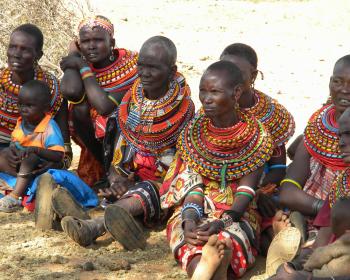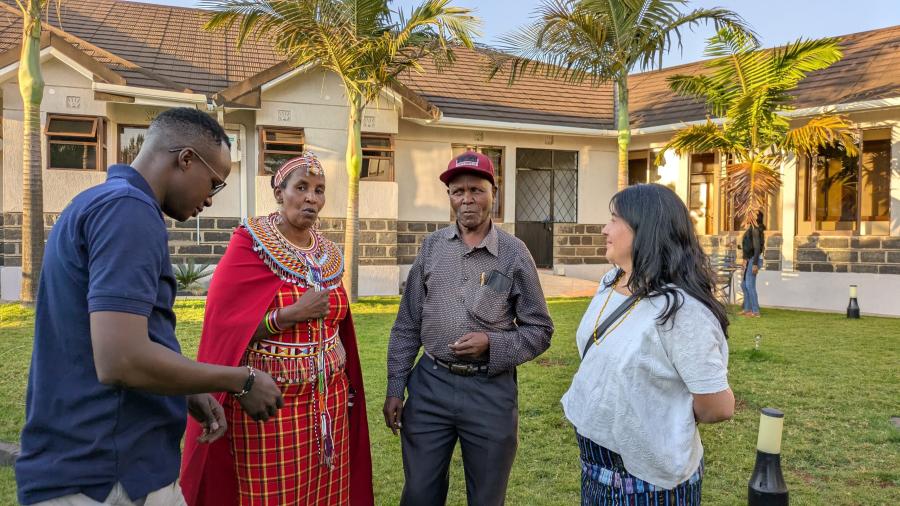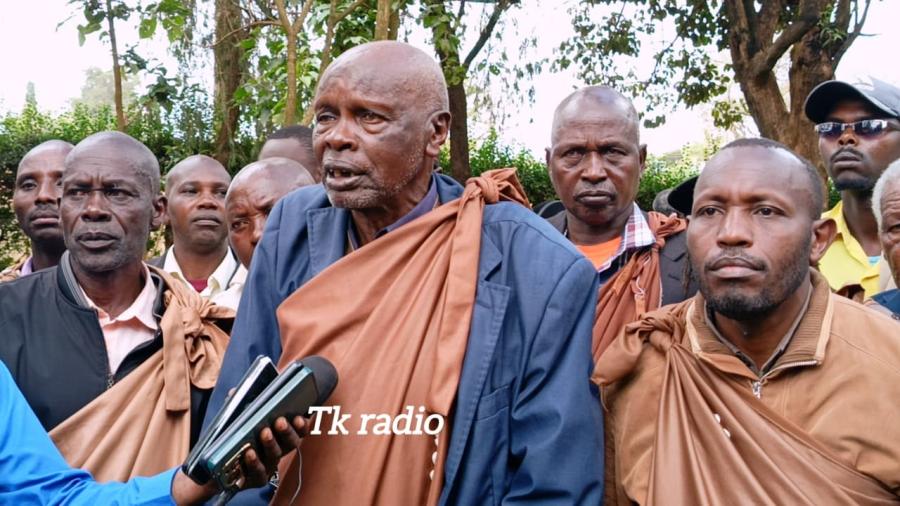February 11, 2010
Rt. Hon. Mwai Kibaki, CGH, MP, President
Rt. Hon. Raila Odinga, EGH, MP, Prime Minister
Republic of Kenya
Re: Please Cancel Police Disarmament Operations and Institute Community-Based Disarmament Process in Northern Kenya
Your Excellencies:
For the past twelve months, Cultural Survival has received reports of widespread and systematic police violence against Samburu communities in Samburu East and Isiolo districts. Last month we sent a research delegation to investigate those allegations. We recorded testimony from scores of Samburu survivors and witnesses from five villages (Lerata, Laresoro, Naishamunyi, Loruko, and Kiltamany) that were attacked by police during 2009 and January 2010. Our researchers also interviewed respected leaders of local and national NGOs, clergy, health workers, county councilors, the Samburu East Member of Parliament, and staff of the Kenyan National Commission on Human Rights and the Kenyan Human Rights Commission.
Our research reveals a consistent and ongoing pattern of police brutality, human rights violations, and impunity. We appeal to you to correct this situation immediately by withdrawing all police forces and authorizing a community-based disarmament process.
Cultural Survival’s full report (forthcoming) includes many detailed accounts of acts of violence committed by the Administrative Police, the Regular Police, the Anti-Stock Theft Unit, and the General Services Unit. These acts include extra-judicial killings, rapes, beatings, disappearances, theft, arson, and intimidation of unarmed Samburu men, women, and children. As a direct result of these attacks, the Samburu people suffered death, injury, terror, severe economic and property loss, and vulnerability to famine and disease.
For example, witnesses described how police helicopters and ground forces approached the sleeping village of Loruko on November 21, 2009. Ground forces fired their guns and mortars into the bomas, killing a woman as she nursed her infant.
Four villagers were hospitalized with serious gunshot wounds. Police forced women, men and children into an open area outside the village, where they kicked and beat them while other police looted their bomas.
In Lerata on January 10, 2010, some 200 police arrived in lorries and Land Cruisers and started beating women and young boys who were outside tending goats. The police then forced their way into the village where they stole everything of value in the bomas. They attacked nine young warriors and two junior elders, beating five of them unconscious. Injuries included broken bones and knife wounds to the thigh and head. Afterwards, fearing another attack, some villagers took their children to hide in the bush every night, saying, “We would rather take our chances with the wild animals than face the police again.” (Independently, the Kenya National Commission on Human Rights reported that five Lerata women were raped in this police attack and afterward fled the region.)
In Kiltamany on January 12, 2010, similar attacks occurred, with police stealing everything of value, beating elders, and raping three terrified women who now fear infection with HIV or other sexually transmitted diseases. The police burned one boma to the ground and set another on fire. Fifteen men and one woman were seriously injured and two were admitted to the clinic in Archers Post. The police gave no reason for the attack.
All of these attacks happened during a period of so-called amnesty, prior to a disarmament deadline, and they followed months of similar police attacks in the area. In addition, they exacerbated cattle-rustling and inter-ethnic tensions that are already high in the region at a time of very severe drought. In short, police actions are reducing rather than increasing security in the region. The attacks are crimes that have been widely reported by the Samburu East Member of Parliament, human rights organizations, and the press, but no criminal investigations or prosecutions against police officers alleged to have committed them have been initiated.
Now your government has announced that police disarmament operations will begin on February 20. Having already committed criminal behavior and gross human rights violations, the police forces that have been terrorizing Samburu people are incapable of carrying out effective, impartial, and orderly disarmament operations. Instead, they should be immediately withdrawn.
The people of Samburu East and Isiolo districts want to participate in a universal, effective, impartial, and lasting disarmament process. This process should be led by community elders, district peace committees, human rights network members, clergy, and NGOs such as Catholic Justice and Peace Commission and the National Muslim Leadership Forum. Based on our investigation, a community-based cooperative process is the only means by which disarmament can occur peacefully and remain permanent in the region.
In addition, the government should recognize the right of Kenyan citizens to monitor police behavior, and the Minister of Public Administration and Internal Security should take immediate action when human rights violations by police forces are reported.
We implore you to immediately withdraw all national police forces stationed in Samburu East and Isiolo districts and instead work with community leaders to establish a community-based process for disarmament throughout the North. Based on our investigation, this is the only means to achieve the security and disarmament goals desired by both your government and the local Samburu people.
We respectfully await your reply and prompt action.
Sincerely yours,
Ellen L. Lutz
Executive Director
CC:
Hon. Prof. George Saitoti, MP, Minister of Public Administration and Internal Security
Francis T. Kimemia, CBS, Permanent Secretary of Public Administration and Internal Security
Matthew Kirai Iteere CBS, EBS, OGW, Police Commissioner
Hon. S. Amos Wako, EGH, EBS, CS, MP, Attorney General
Ambassador Michael E. Ranneberger, United States Ambassador to Kenya
Ms. Navanethem Pillay, UN High Commissioner on Human Rights



